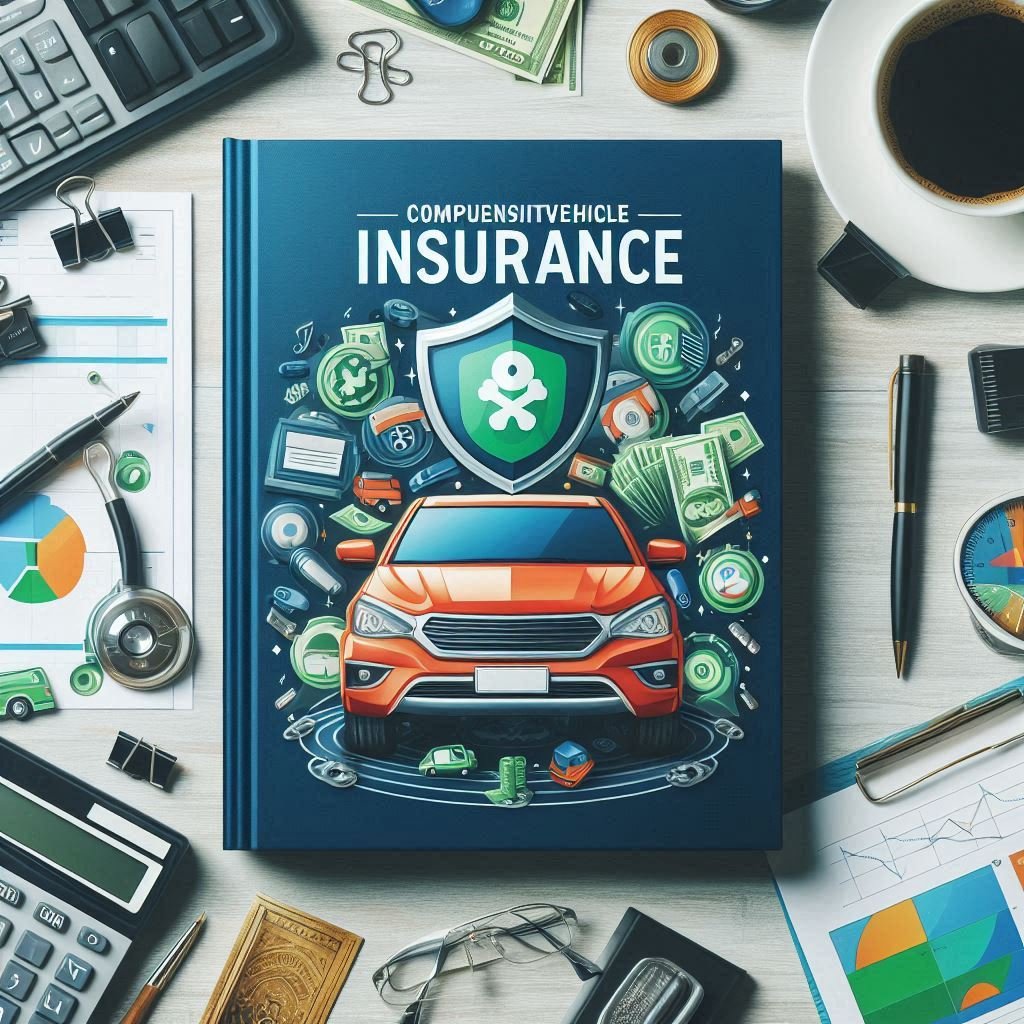Comprehensive vehicle insurance is a crucial safeguard for vehicle owners, providing extensive coverage beyond basic liability and collision protection. In 2024, understanding the nuances of comprehensive insurance—from what it covers to how it benefits you—is essential for protecting both your car and your financial well-being. This comprehensive guide explores everything you need to know about comprehensive vehicle insurance, factors affecting premiums, tips for choosing the right policy, and the importance of comprehensive coverage in today’s automotive landscape.
Introduction to Comprehensive Vehicle Insurance
Comprehensive vehicle insurance, often referred to simply as “comprehensive coverage,” is an optional but highly recommended form of insurance that protects your vehicle against a wide range of risks beyond collision damage. Unlike basic liability insurance, which covers damages to other vehicles and property, comprehensive insurance covers damages to your own vehicle due to theft, vandalism, natural disasters, and other non-collision incidents.
What Does Comprehensive Insurance Cover?
- Theft: Comprehensive insurance covers the loss or damage to your vehicle if it is stolen or broken into. It reimburses you for the vehicle’s market value at the time of the incident.
- Vandalism: If your vehicle is intentionally damaged by someone, comprehensive insurance will cover the cost of repairs.
- Natural Disasters: Damage caused by natural disasters such as earthquakes, floods, hurricanes, and tornadoes is covered under comprehensive insurance.
- Fire: If your vehicle is damaged or destroyed in a fire, comprehensive insurance will pay for repairs or provide compensation for the vehicle’s value.
- Falling Objects: Comprehensive insurance covers damages caused by falling objects such as tree branches or debris.
- Animal Collisions: If your vehicle collides with an animal, such as a deer or a moose, comprehensive insurance will cover the damages.
- Civil Disturbances: Damage caused by civil disturbances, riots, or civil commotion is typically covered under comprehensive insurance.
Factors Affecting Comprehensive Insurance Premiums
Several factors influence the cost of comprehensive insurance premiums. Understanding these factors can help you estimate costs and potentially lower your premiums:
- Vehicle Value: The make, model, age, and market value of your vehicle affect the cost of comprehensive insurance. Newer or more expensive vehicles may have higher premiums.
- Deductible Amount: The deductible is the amount you pay out of pocket before your insurance coverage kicks in. Choosing a higher deductible can lower your premiums, but you’ll pay more if you need to file a claim.
- Location: The area where you live and park your vehicle affects premiums. Higher crime rates or prone-to-natural-disaster areas may lead to higher premiums.
- Driving History: Your driving record, including accidents and traffic violations, can impact comprehensive insurance rates.
- Claims History: A history of previous claims may lead to higher premiums.
- Credit Score: In some regions, your credit score may affect your insurance premiums.
Benefits of Comprehensive Vehicle Insurance
- Financial Protection: Comprehensive insurance provides financial protection against a wide range of risks that could damage or destroy your vehicle, saving you from costly out-of-pocket expenses.
- Peace of Mind: Knowing that your vehicle is covered against theft, vandalism, and natural disasters gives you peace of mind while driving and when your vehicle is parked.
- Covered Perils: Unlike basic liability insurance, comprehensive insurance covers damages from a variety of non-collision incidents that could otherwise result in significant financial loss.
- Vehicle Replacement: If your vehicle is stolen and not recovered or deemed a total loss due to covered perils, comprehensive insurance typically reimburses you for the vehicle’s market value.
- Resale Value Protection: Keeping comprehensive insurance on your vehicle can help maintain its resale value by ensuring repairs are made promptly and professionally.
Tips for Choosing the Right Comprehensive Insurance Policy
- Evaluate Your Vehicle’s Value: Consider your vehicle’s current market value and whether comprehensive insurance is cost-effective based on the vehicle’s age and condition.
- Compare Quotes: Obtain quotes from multiple insurance companies to compare premiums, coverage limits, deductibles, and additional benefits.
- Understand Coverage Details: Read the policy terms and conditions carefully to understand what is covered, excluded, and any limitations that may apply.
- Review Deductible Options: Choose a deductible amount that you can comfortably afford to pay out of pocket in case of a claim. Higher deductibles generally result in lower premiums.
- Consider Additional Coverage: Depending on your needs, consider adding endorsements or riders to your comprehensive insurance policy, such as roadside assistance or rental car reimbursement.
- Check Insurer’s Reputation: Research the insurer’s reputation for customer service, claims handling, and financial stability through reviews and ratings.
Common Exclusions in Comprehensive Insurance Policies
- Mechanical Breakdowns: Normal wear and tear or mechanical failures are typically not covered under comprehensive insurance.
- Driving Under the Influence: Damage or loss caused while driving under the influence of alcohol or drugs may be excluded.
- Non-Permitted Use: Using your vehicle for purposes not permitted under your policy, such as commercial use with a personal policy, may not be covered.
- War or Nuclear Incidents: Damage caused by war, nuclear incidents, or terrorism is generally excluded from comprehensive coverage.
- Racing or Speeding: Incidents occurring during racing or speeding may be excluded from coverage.
Conclusion
Comprehensive vehicle insurance is a valuable investment for protecting your car and finances against a wide range of risks that basic insurance may not cover. In 2024, understanding the scope of comprehensive insurance—from theft and vandalism to natural disasters and more—is essential for making informed decisions as a vehicle owner. By assessing your coverage needs, comparing quotes, and understanding policy details, you can select a comprehensive insurance policy that provides robust protection and peace of mind on the road. Whether it’s safeguarding against theft, preparing for natural disasters, or covering unexpected damages, comprehensive insurance ensures that you’re prepared for whatever comes your way while driving.
